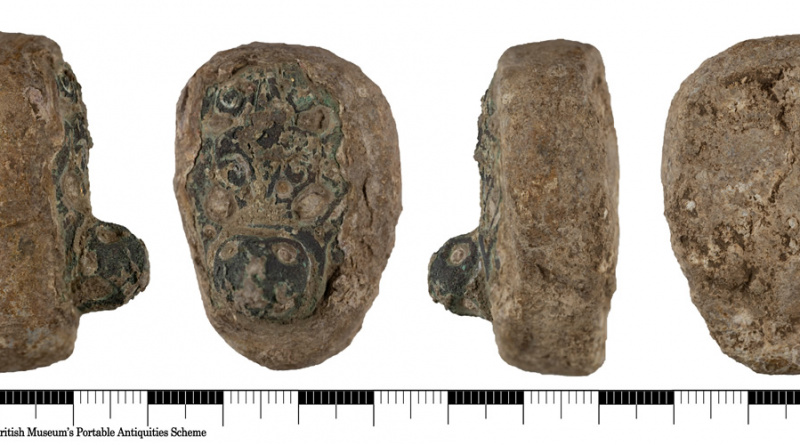Viking weight with oval brooch
Although this looks unspectacular, it is considered to be a find of National Importance. It is slightly difficult to make out from the photographs, but it is a Viking lead weight into which a fragment of a copper alloy oval brooch has been imbedded. It is the rarity of the Viking oval brooch in the UK that gives this find its significance.
Danelaw and currency
Viking weights are widely known throughout its territories. They formed part of the bullion economy whereby repurposed or looted metal (mainly silver) could be traded. Although imprecise, the embedded objects in Viking weights allows them to be dated.
The establishment of a Viking settlement in part of England in the ninth century is known as Danelaw. The extent and nature of Danelaw is a matter of some debate. However, the dating of these “embedded object” weights suggest that a dual currency, bullion alongside coins, existed until at least 930 AD.1
Embedded weights
Many different objects have been found embedded in Viking weights, including glasswork and shells but metalwork, including coins, is the most common. Where metalwork is used, it tends to be centred on the decorative design. It is not clear why decorative objects were embedded in weights. Perhaps, it simply provided a means of identifying a particular weight or maybe the origin of the embedded object afforded some kind of status or geographic identity to the owner.

